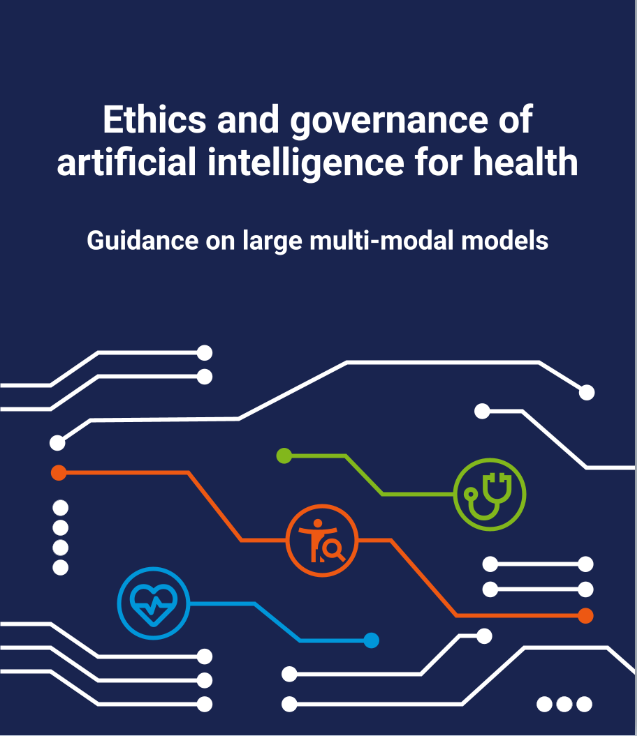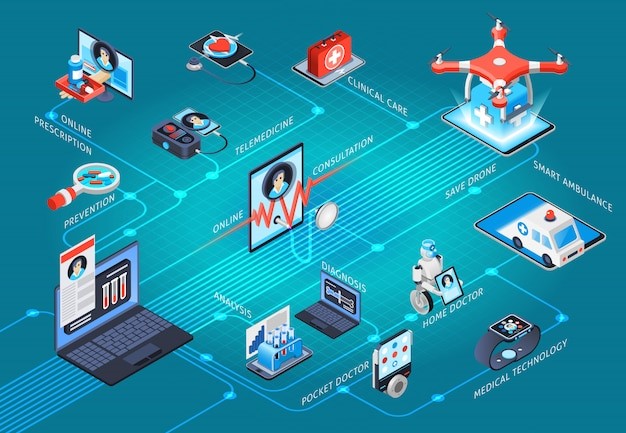In a significant move towards responsible technological integration, the World Health Organization (WHO) has issued comprehensive guidelines on the ethical use and governance of AI and Large Multi-Modal Models (LMMs) in the field of healthcare. This initiative aims to strike a balance between the potential benefits of generative AI technology and the associated risks. The new framework covers diverse applications such as diagnosis, patient care, administrative tasks, medical education, and scientific research.
Also Read: FDA Approves First AI-Powered Tool for Skin Cancer Diagnosis
Unveiling the WHO Guidance
The WHO’s guidance consists of over 40 recommendations directed at governments, technology companies, and healthcare providers. LMMs, a rapidly growing branch of generative AI, are capable of processing various data inputs, including text, videos, and images, and generating diverse outputs, mimicking human communication. The guidance emphasizes the need for responsible development to ensure the health and well-being of populations.

Potential Benefits and Risks of LMMs in Healthcare
The guidance categorizes the applications of LMMs in five broad areas, including diagnosis, patient-guided use, administrative tasks, medical and nursing education, and scientific research. Despite their potential benefits, LMMs pose documented risks such as the generation of false or biased information, prompting concerns about patient safety and decision-making in healthcare.
Also Read: Stanford Doctors Deem GPT-4 Unfit for Medical Assistance
WHO’s Emphasis on Ethical Principles and Human Rights Standards
The WHO underscores the importance of ethical principles and human rights standards in the development of AI technologies, urging stakeholders to actively engage in all stages, from design to deployment. The guidance advocates for transparent and robust regulatory frameworks to navigate the complexities of LMMs and emphasizes the necessity for global cooperation in regulating AI technologies.
Key Recommendations for Governments and Developers
Key recommendations outlined by the WHO urge governments to invest in public infrastructure and enforce laws and regulations to uphold ethical obligations. The guidelines also encourage them to establish regulatory agencies for assessing LMMs. Additionally, they signal governments to implement mandatory post-release auditing and impact assessments. Developers are advised to engage a diverse range of stakeholders and design LMMs for well-defined tasks with a focus on accuracy and reliability.
Also Read: AIIMS Delhi Begins Researching Robotics, AI, and Drones for Healthcare

Our Say
The WHO’s guidance serves as a crucial framework for the ethical and responsible development and use of AI technologies, particularly LMMs, in healthcare. As the field of AI continues to advance, these guidelines will play a pivotal role in shaping a future where technology enhances healthcare outcomes while upholding ethical standards and safeguarding human well-being. The collaborative approach advocated by the WHO reflects the necessity for a harmonized global effort to navigate the complexities of AI in healthcare responsibly.
The WHO’s initiative marks a significant stride towards ensuring that AI technologies progress in a manner that minimizes potential risks while maximizing benefits for humanity. As we enter an era where AI becomes increasingly integrated into healthcare, responsible practices, and ethical considerations must guide the development and deployment of these transformative technologies.
Follow us on Google News to stay updated with the latest innovations in the world of AI, Data Science, & GenAI.




